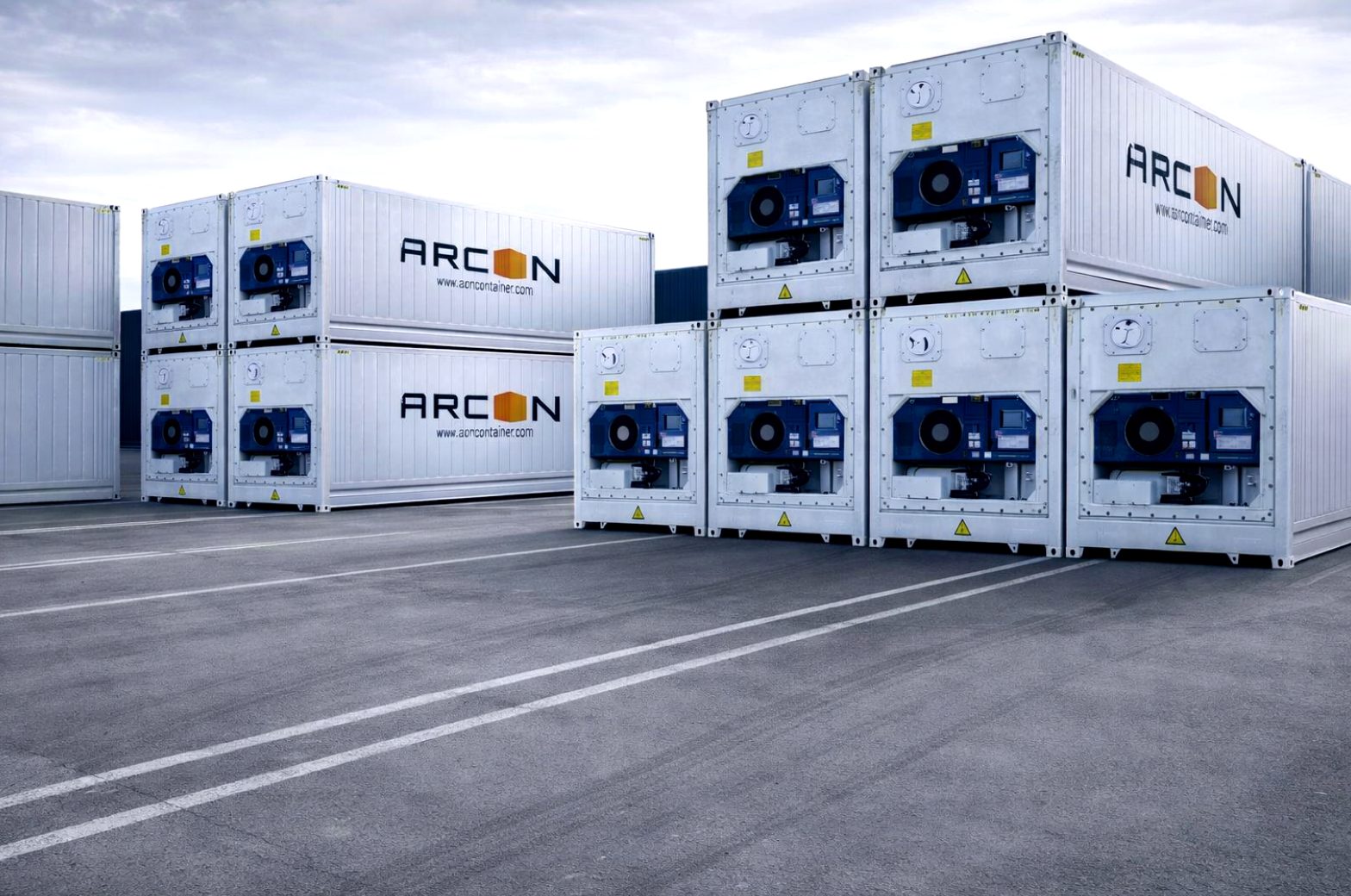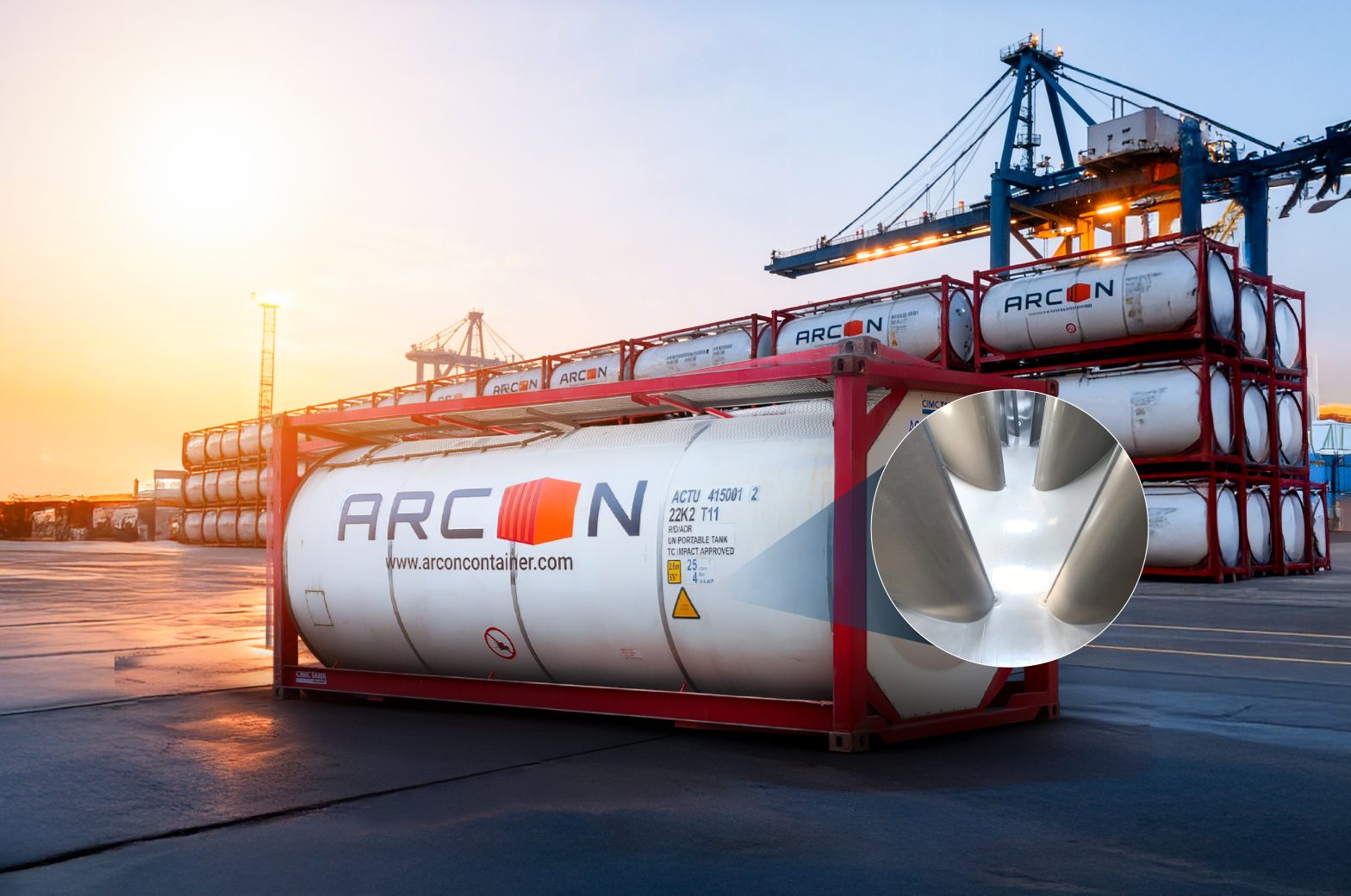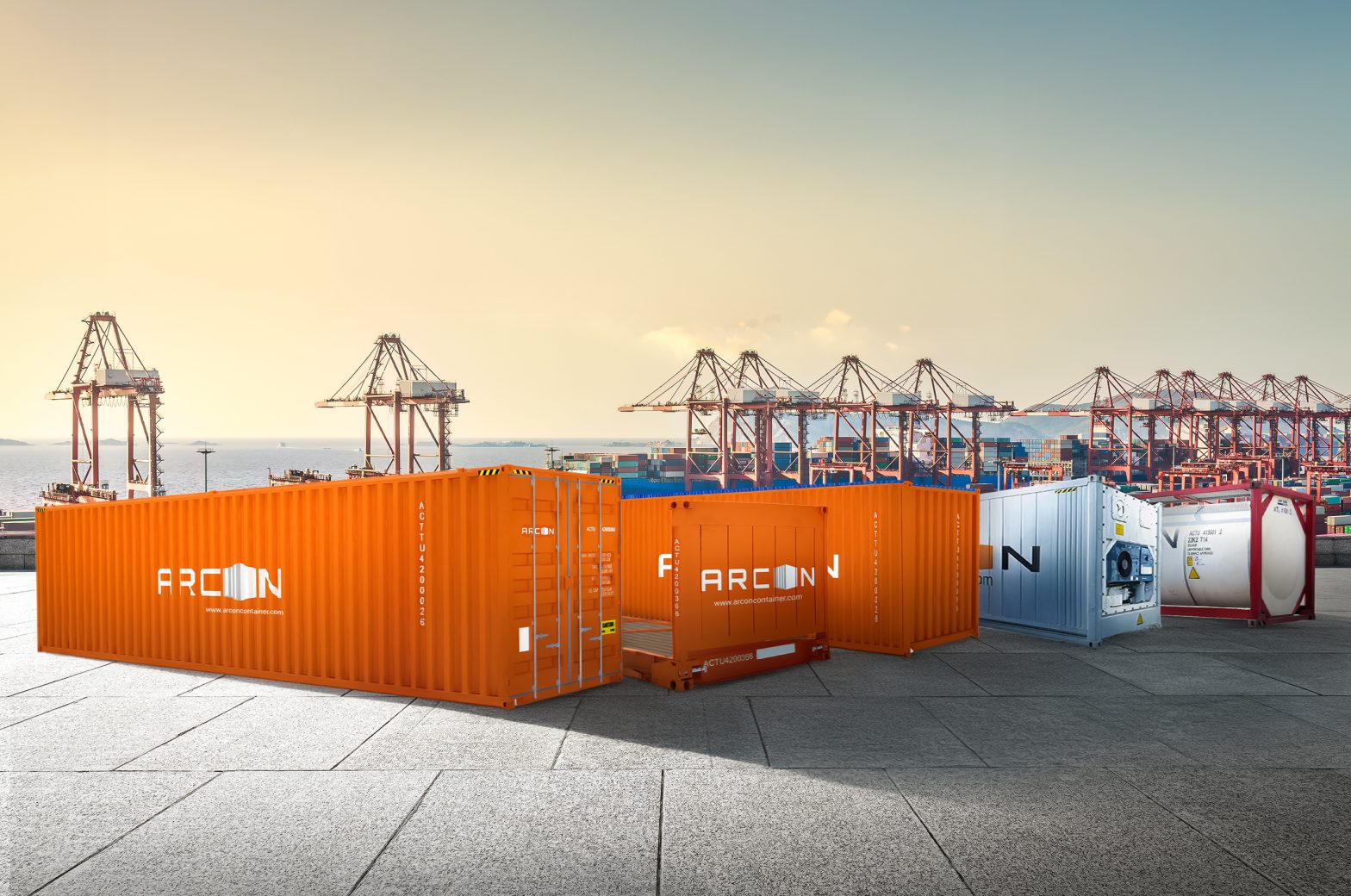When it comes to storing or moving goods that react to temperature, choosing between refrigerated containers and insulated containers isn’t as simple as it sounds. These two container types serve very different needs. Picking the wrong one could mean damaged goods, wasted money, and avoidable headaches.
This blog breaks down the differences, common use cases, and how you can make the right choice based on your cargo, your location, and your storage needs.
What Are Refrigerated Containers?
Refrigerated containers (also called reefers) are designed to actively cool the cargo inside. They come with a built-in cooling system and can hold specific temperatures over long periods, making them ideal for both storage and transportation of temperature-sensitive goods
Common uses include the storage or transportation of:
- Pharmaceuticals
- Dairy products
- Frozen or chilled foods
- Chemicals requiring controlled environments
- Any goods that need to be kept below a specific temperature
What Are Insulated Containers?
An insulated shipping container doesn’t cool or heat anything on its own. Instead, it helps maintain the internal temperature by blocking outside heat or cold. Think of it like a giant thermos flask for your cargo.
These are often used for:
- Short-term storage
- Locations with moderate climates
- Goods that don’t need exact temperatures, just stability
You’ll also find many options if you’re looking for an insulated storage container to keep equipment, dry goods, or materials safe on job sites.
Key Differences: Refrigerated vs. Insulated
| Feature | Refrigerated Containers | Insulated Containers |
| Cooling | Active, powered | Passive, no power needed |
| Temperature Range | Fixed, adjustable | Protective, not adjustable |
| Best For | Perishables, pharma, chemicals | Tools, dry goods, short-term |
| Costs | Higher (due to tech) | Lower (due to simplicity) |
| Energy Required | Yes | No |
How to Choose: Practical Questions to Ask
The right container depends on what you’re storing, how long, and where. These quick questions will help you narrow it down.
If you’re stuck between the two, ask yourself:
- Do my goods need a fixed, cool temperature?
- Is this for long-term shipping or short-term storage?
- Will this container sit in extreme heat or cold?
- Do I have access to reliable power for cooling?
- Am I storing perishables or just protecting against heat swings?
When to choose refrigerated:
- You’re in the food, pharma, or chemical business.
- You need strict temperature control.
- Your cargo is traveling far or sitting for long.
When to choose insulated:
- You’re storing equipment or materials on-site.
- You only need to buffer against temperature, not cool.
- You want a cost-effective, no-power solution.
Mistakes to Avoid
- Thinking insulated equals cold (it doesn’t).
- Ignoring power access for reefers.
- Paying for refrigeration you don’t need.
- Picking containers on price alone, not purpose.
Conclusion
The choice between refrigerated and insulated containers comes down to one thing: your cargo’s needs. If you need active cooling, go refrigerated. If you need protection from swings in temperature, insulation might be enough.
At Arcon Containers, we help businesses and individuals find container solutions that match their specific requirements. We understand that every cargo comes with its own set of challenges, and the right container should solve them, not complicate them.
If you’re looking for an insulated shipping container for sale or simply need more clarity, start by mapping your storage needs before you buy, or better yet, talk to someone who handles this every day.
When it comes to transporting or storing temperature-sensitive cargo, selecting between refrigerated and insulated containers isn’t a one-size-fits-all decision. While both container types provide protection against external temperature fluctuations, their functionality, applications, and costs differ significantly.
This article outlines the operational differences, typical use cases, and key considerations to help you make the most informed choice—technically and commercially.
Refrigerated Containers (Reefers): Precision Cooling with Active Temperature Control
Refrigerated containers, often referred to as reefers, are equipped with an integrated active refrigeration unit. These containers maintain precise temperature ranges—typically between -30°C to +30°C—and are ideal for goods requiring stringent thermal regulation over extended durations or distances.
Core Features:
- Built-in cooling unit powered by electricity (shore power or generator)
- Microprocessor-based temperature control systems
- Internal airflow systems for uniform temperature distribution
- Compliant with ISO standards (ISO 1496-2) for refrigerated containers
Ideal For:
- Perishable foods (frozen food,, dairy, produce)
- Pharmaceuticals and vaccines (GDP-compliant transport)
- Temperature-sensitive chemicals and industrial compounds
- Long-haul multimodal shipping
Insulated Containers: Passive Thermal Protection
Insulated containers provide passive thermal insulation using materials like polyurethane foam, polystyrene, or composite panels. While they do not generate or regulate temperature, they are engineered to reduce thermal conductivity—slowing heat transfer from external environments.
Core Features:
- Insulated walls, roofs, and doors for thermal retention
- Typically constructed using Corten steel with thermal barrier linings
- No mechanical or electrical components
- Compliant with ISO 1496-1 (general purpose freight containers)
Ideal For:
- Dry cargo that requires buffering against ambient temperature fluctuations
- Temporary on-site storage in moderate climates
- Protecting sensitive equipment or electronics
- Short-haul transport where powered refrigeration isn’t viable
Refrigerated vs. Insulated: A Technical Comparison
| Parameter | Refrigerated Containers (Reefers) | Insulated Containers |
| Cooling Mechanism | Active (mechanical refrigeration) | Passive (thermal insulation only) |
| Temperature Range | Adjustable (-30°C to +30°C) | Follows ambient; buffers only |
| Power Requirement | Yes (external power source or genset) | No |
| Regulatory Use | GDP, HACCP, and cold-chain logistics | General cargo protection |
| Best Suited For | Perishables, pharma, chemicals | Tools, dry goods, electronics, site storage |
| Operational Cost | Higher (energy, maintenance) | Lower (no energy required) |
Decision-Making Framework: Key Questions to Ask
To choose the appropriate container solution, assess your operational conditions through these parameters:
- What is the optimal temperature range required for the cargo?
- Is thermal regulation critical, or is buffering sufficient?
- Is the container being used for transit or stationary storage?
- Will the unit be exposed to extreme environmental conditions?
- Is consistent access to power infrastructure available?
- What is the cargo’s sensitivity to temperature deviation?
Application Scenarios
✅ Choose Refrigerated Containers When:
- You handle perishable or regulated cargo with narrow temperature tolerances
- Cold-chain integrity is mandated (e.g., pharma, food exports)
- Cargo needs to remain within a constant temperature band during multimodal transport
- You’re operating in high-heat or sub-zero environments where passive insulation isn’t sufficient
✅ Choose Insulated Containers When:
- You’re storing non-perishable goods in environments with mild to moderate temperature variations
- You require a cost-effective and low-maintenance solution for short-term use
- The application does not demand temperature control, only protection against rapid fluctuations
- You lack access to reliable power infrastructure
Common Pitfalls to Avoid
- Misconception: Insulated containers maintain a cold environment
- Operational Error: Overlooking power availability for reefers
- Cost Inefficiency: Using reefers when insulation suffices
- Procurement Mistake: Choosing based solely on price, not thermal requirements
Conclusion: Let Cargo Needs Drive Container Selection
Ultimately, the correct choice between refrigerated and insulated containers should align with your cargo’s thermal sensitivity, duration of storage, logistics conditions, and cost-to-benefit ratio.
At ARCON Containers, we provide refrigerated container solutions, engineered to global standards. Whether you’re ensuring cold-chain compliance or seeking passive protection in dynamic conditions, we help you select the right container—technically suited and operationally viable.
Looking for expert consultation or ready-to-deploy units?
Explore our range or speak to our specialists today.







